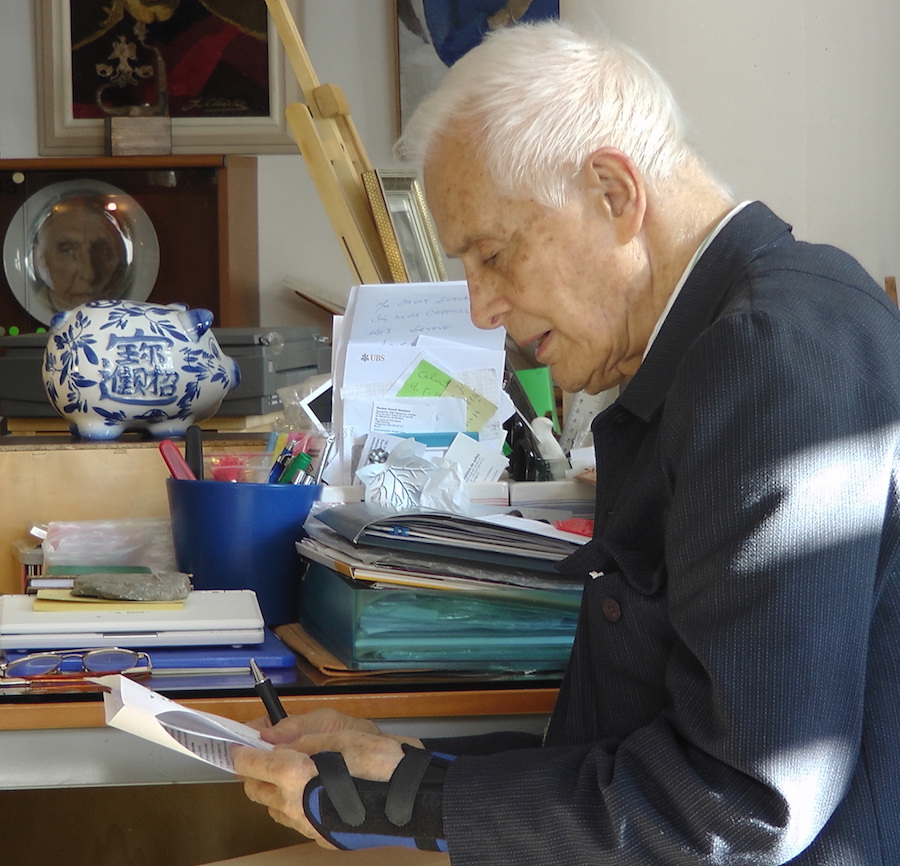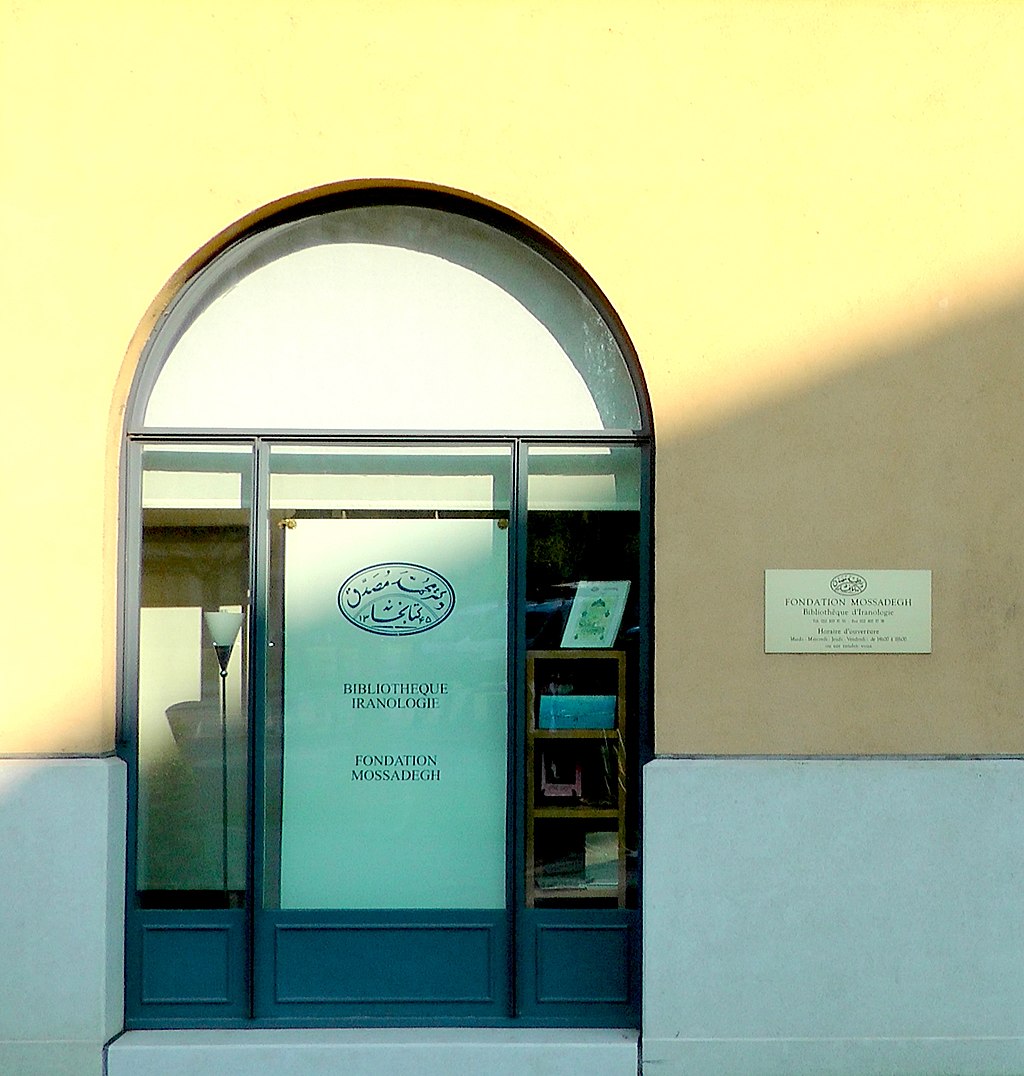Library dedicated to Iran opens in Geneva

A new library devoted to Iran has just opened in Carouge, near Geneva. It gives visitors the chance to learn more about this much misunderstood country and about one of the most important and controversial figures in its recent history.
The library is run by Abdol Majid Bayat, an Iranian who has lived in Geneva for 50 years. One figure looms large in the 4,000 books in the collection: Mohammad Mossadegh, Iranian prime minister between 1951 and 1953. That is not surprising when one learns that Mossadegh was Bayat’s grandfather.
Mossadegh, a leftist nationalist, is a central figure in the development of modern Iran. He challenged the rule of the Shah and dominance in the country of the great powers – at the time when Russia controlled the northern half of Iran, while Britain held sway over the south.
“He wasn’t the kind of nationalist you find in Europe. He was called a nationalist because he wanted Iran to decide its own fate,” Abdol Majid Bayat told swissinfo.
“None of the country’s oil revenue was going into the state’s coffers. For that reason he began to nationalise the oil sector. He wanted to steer Iran away from its attachment to the big oil companies – and that’s why he became very popular in Iran, and why he remains popular,” he says.
Mossadegh was overthrown in a British- and American-backed coup in August 1953. He died while under house arrest 14 years later, but remains a symbol of freedom and democracy for many young Iranians.
The library offers both a comprehensive guide to Iran and a tribute to Mossadegh’s career. There are works on Persian art and philosophy, the history of Iran and Shi’a Islam. But there are also photos and letters, an album presented to Mossadegh by President Truman and the thesis on Islamic law that he wrote while studying at the University of Neuchatel.

Bayat though is quick to point out that the collection is apolitical: “I’ve collected as many books as I could about Iran. Some are sympathetic to my grandfather, others are critical. It’s up to the people who come and read them to make up their minds – they’re free to decide.”
One of the motivations behind the library was that Bayat was concerned that the legacy of his family would be lost: “Our family did lots of social things in Iran – they built hospitals and schools. All these things have disappeared. So I said to myself, there has to be a place to keep them.
“I came up with the idea of this library because I remember how my grandfather loved reading and always thought about teaching people,” Bayat says.
“My aim is to allow people to come here and study – be it about ancient Persia or modern Iran – if they really want to see how things have really happened in Iran, then hopefully they will find out here.”
by Roy Probert
Images updated by Thair Alsaadi, 28.09.2021

In compliance with the JTI standards
More: SWI swissinfo.ch certified by the Journalism Trust Initiative
You can find an overview of ongoing debates with our journalists here. Please join us!
If you want to start a conversation about a topic raised in this article or want to report factual errors, email us at english@swissinfo.ch.